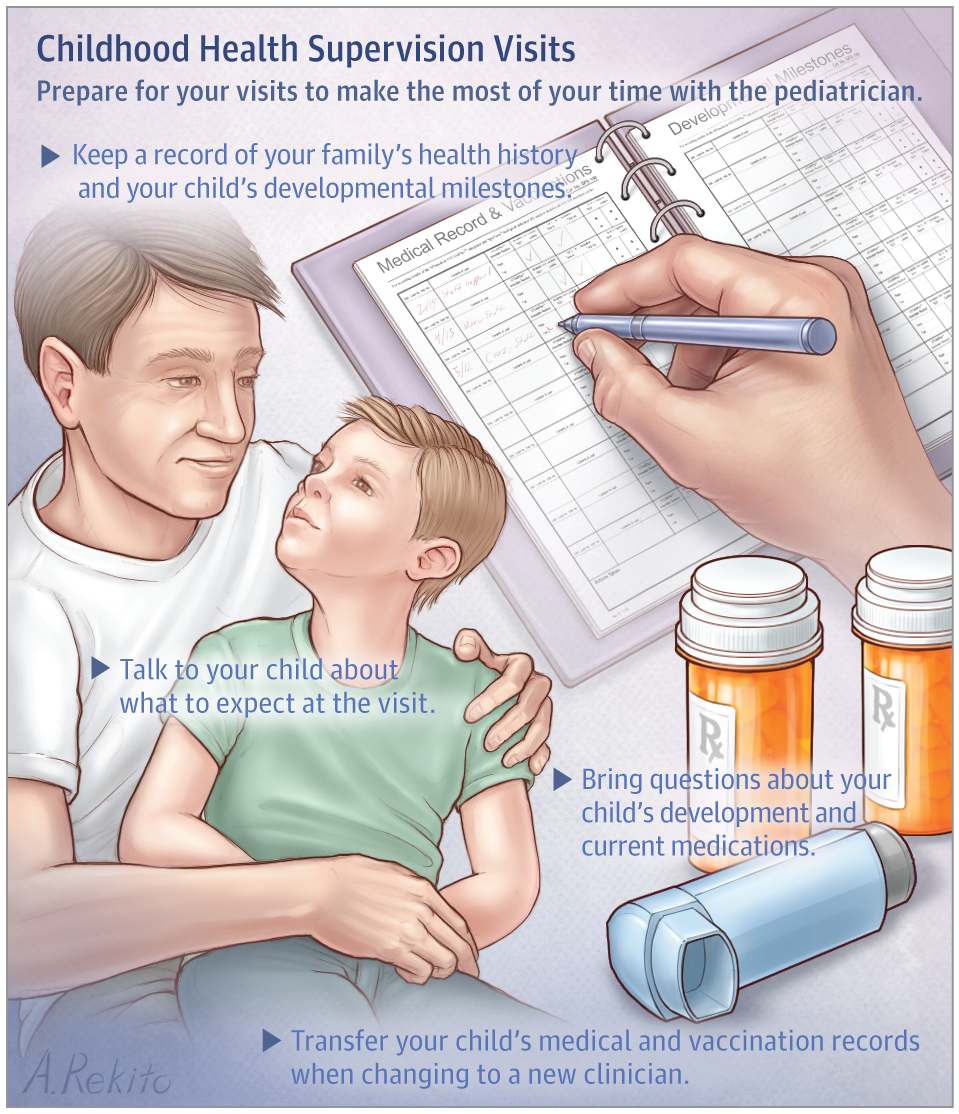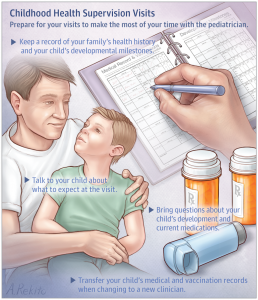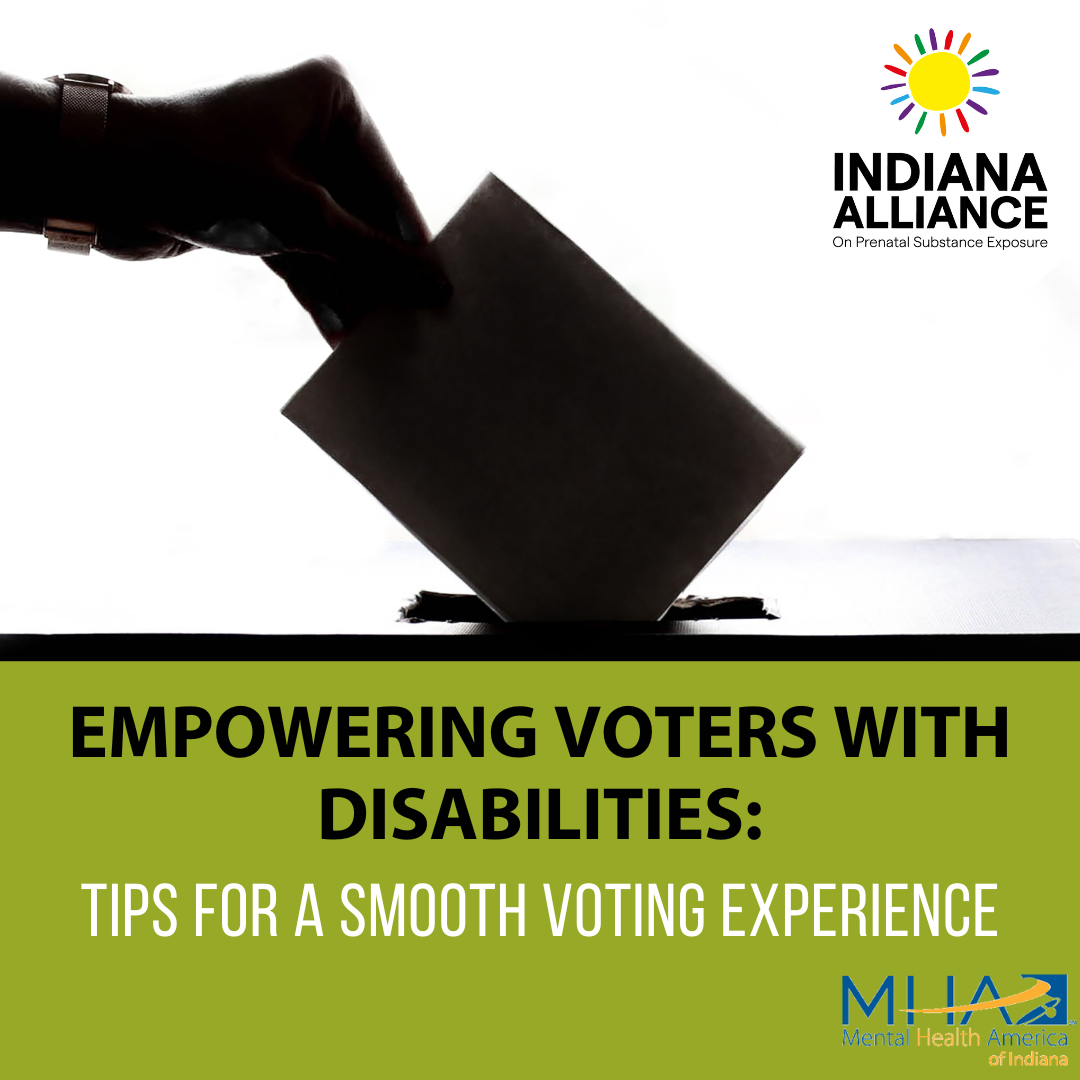
When you parent a foster or adoptive child, it’s not always easy to have an accurate or current record of their bio-family’s health history, the child’s developmental milestones, or their medical history. This can delay correct and early diagnosis of #invisibledisabilities, like #FASD, #ASD, #ADHD, #SPD, etc.

The American Academy of Pediatrics recommends that children see a pediatric health care professional regularly and often throughout their infancy and childhood.
These visits are especially frequent during the first 3 years of life. Parents can make the most of their time in the pediatric office by preparing before each visit.
Know Your Child’s History and Family’s History
It is very helpful to make sure medical records are transferred if your child is seeing a new clinician, especially records of any vaccinations your child has received. Consider keeping a folder with your child’s records that you can bring to all of their medical appointments. Your child’s clinician will ask about not only your child’s health, but also your family’s health, so it can be helpful to keep an ongoing record of your family history.
Your child’s clinician will ask you questions about your child’s development at every health supervision visit. It helps to be familiar with the developmental milestones, such as when most children start moving in different ways and using words, and watch for what new things your child is doing or saying between each visit. Your clinician’s office might ask you to fill out development questionnaires before your visit or as you are waiting to be seen. Your answers to these questions will help the clinician assess how your child’s development is progressing.
What to Bring to the Visit
One of the most important things to bring to any health supervision visit is a list of questions. Use this time with your clinician to get their views on any topic related to the health and development of your child. If you have a question about a skin condition or your child’s movements or behaviors, consider bringing a picture or video. For children who are taking medications, including inhalers, it helps to bring these medications to your visit to confirm current doses and review any questions you have.
During any visit to a health care professional, there is often time during which you might be waiting. Consider bringing drinks or snacks (if allowed by your pediatrician’s office), books, and toys with you. Think of this as protected time you get to spend with your child.
What to Tell Your Child Ahead of Time
Parents often wonder how much and what type of information to share with their children about an upcoming pediatric visit. This can depend on your child’s age and maturity. In general, it is best to be as honest as you can about what the visit will involve, including undressing and a full examination. Talk about the possibility of shots and blood tests, explaining that these are normal for kids when they go to the physician’s office. Avoid telling your child there will not be any needles even if you are not expecting them because sometimes a child might need a catch-up or new vaccination or an unexpected blood test. Vaccines should also not be described as punishments or used in bargaining or negotiations. If possible, try to schedule a fun activity after the visit to reward your child for a job well done.
For More Information
The JAMA Pediatrics Patient Page is a public service of JAMA Pediatrics. The information and recommendations appearing on this page are appropriate in most instances, but they are not a substitute for medical diagnosis. For specific information concerning your child’s medical condition, JAMA Pediatrics suggests that you consult your child’s physician. This page may be photocopied noncommercially by physicians and other health care professionals to share with patients. To purchase bulk reprints, call 312/464-0776.
Credit / Sources
This article was published by JAMA Pediadrics, and appeared originally on their webpage.
It was written by Maheen Quadri, MD, MS; Megan A. Moreno, MD, MSEd, MPH Article Information









